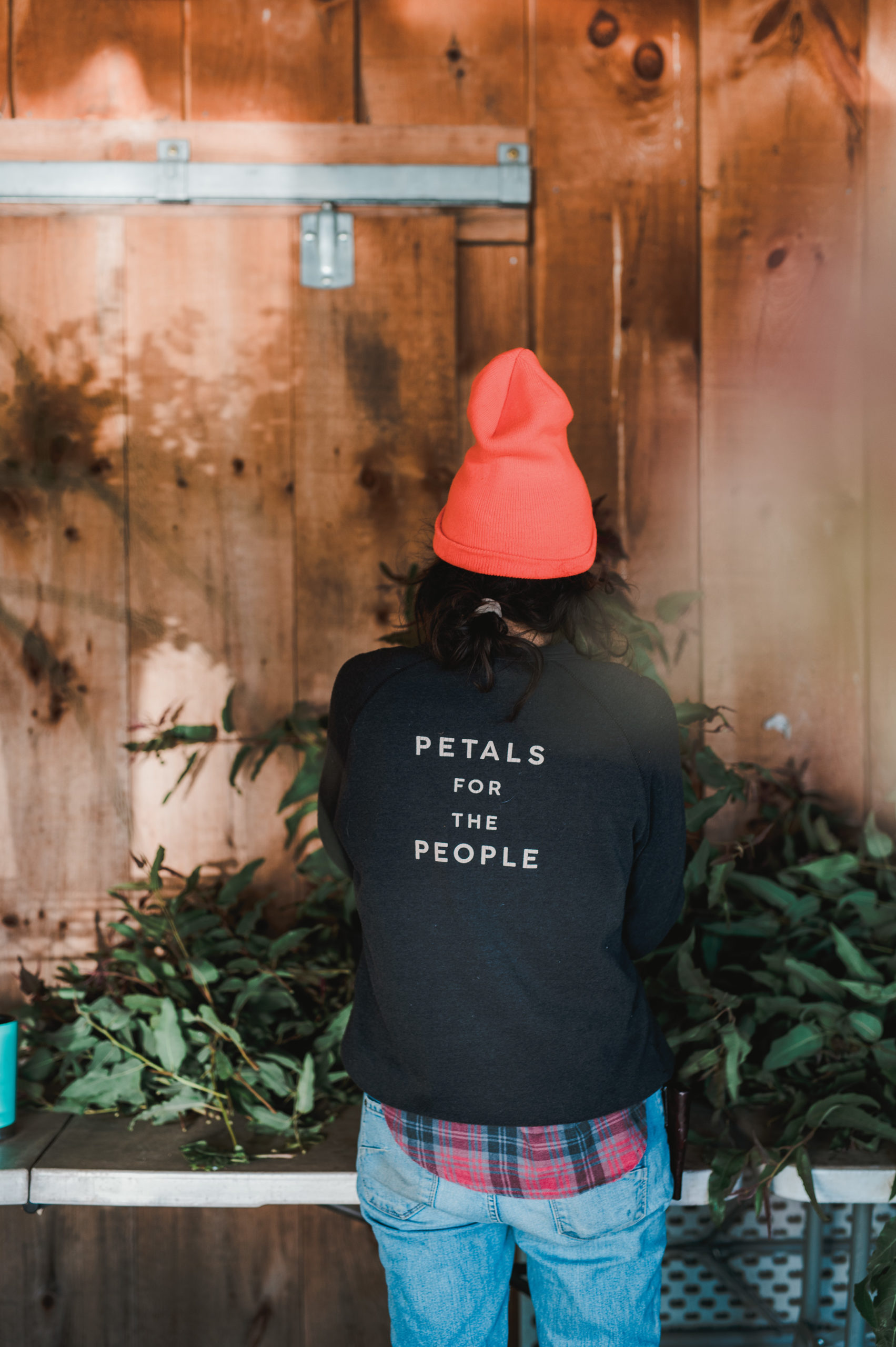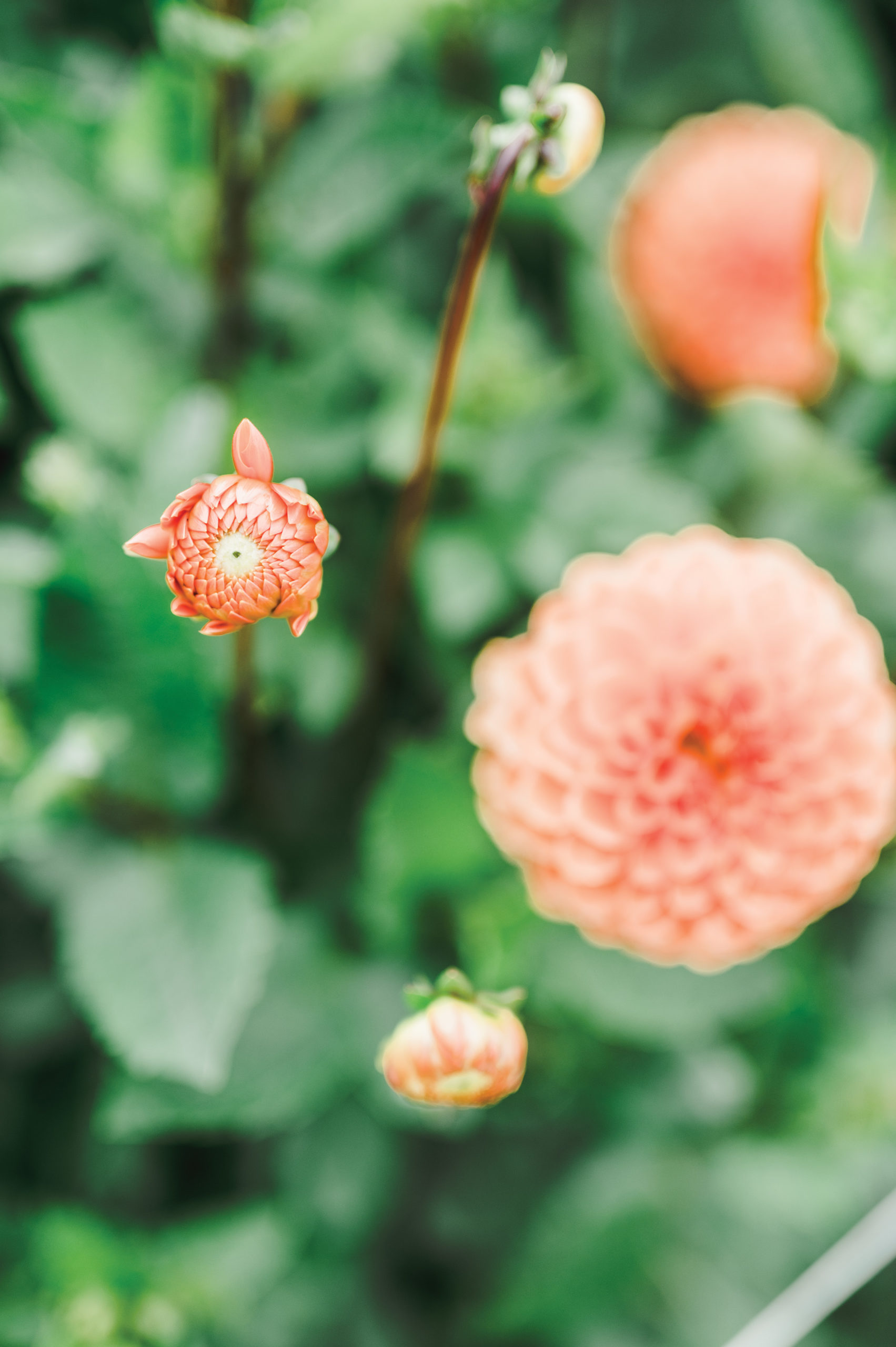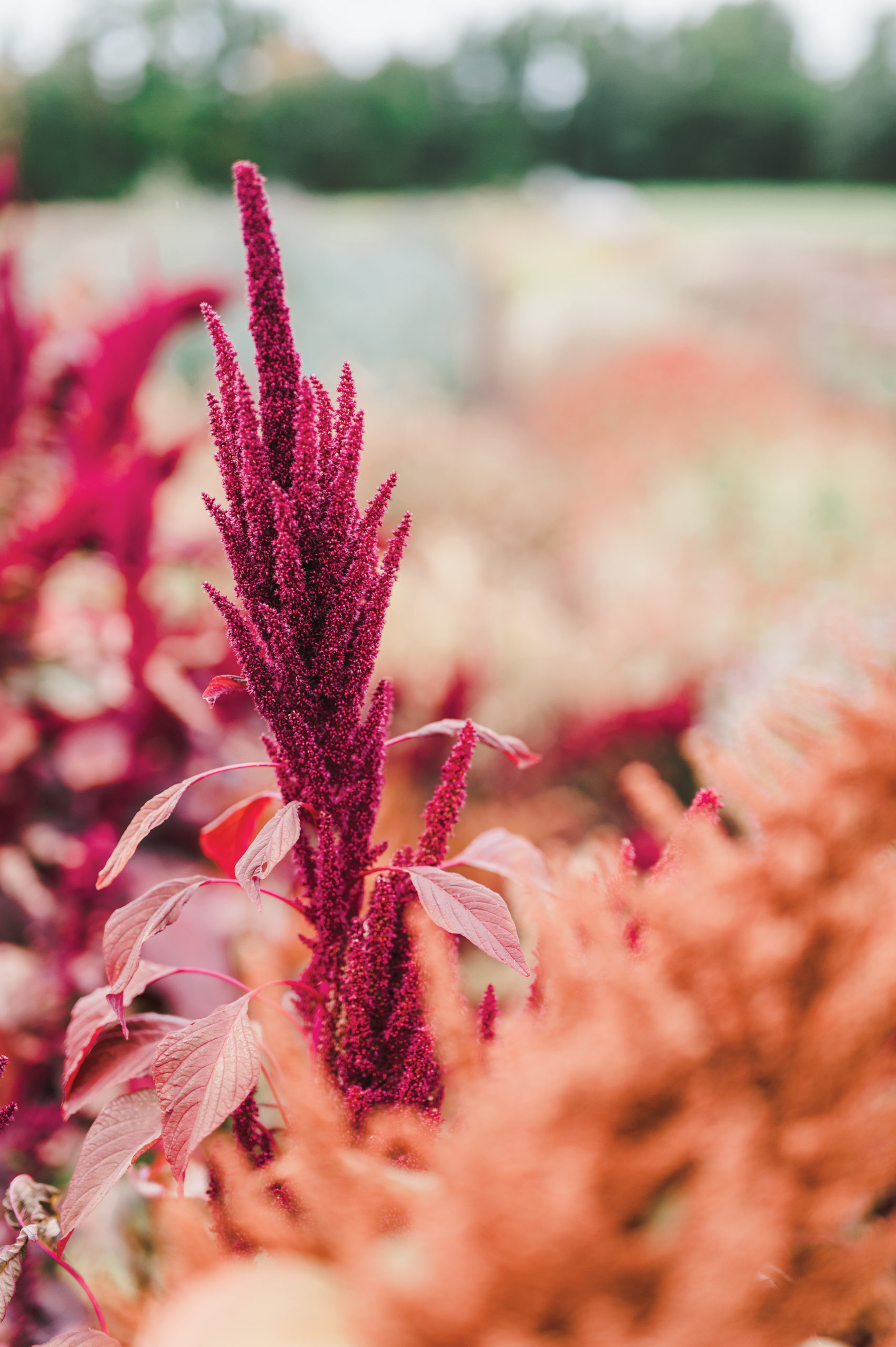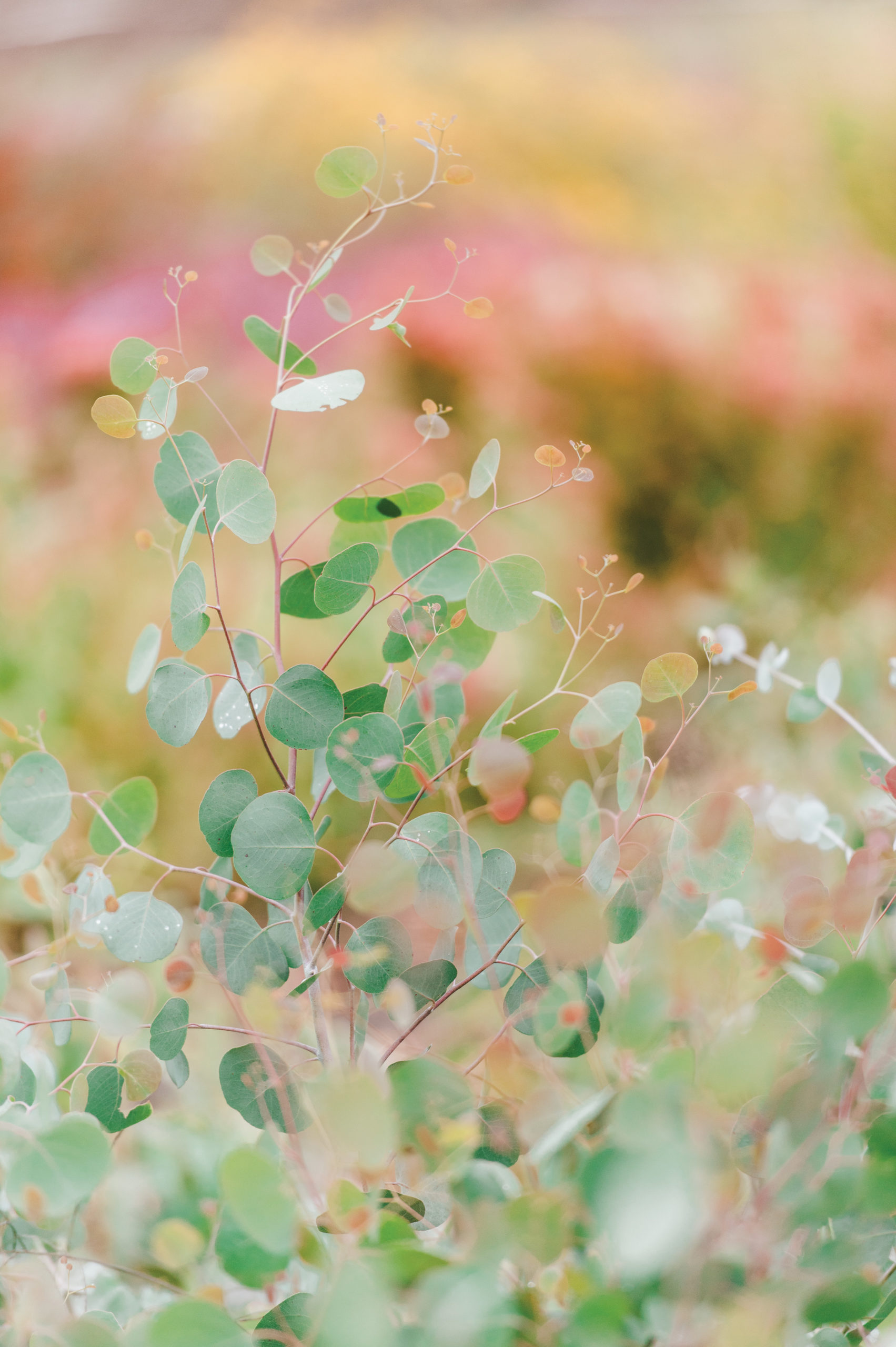Maine’s Flower Farmers Cultivate Sustainable Beauty and Social Justice
Maine’s flower farmers cultivate sustainable beauty and paths toward justice.
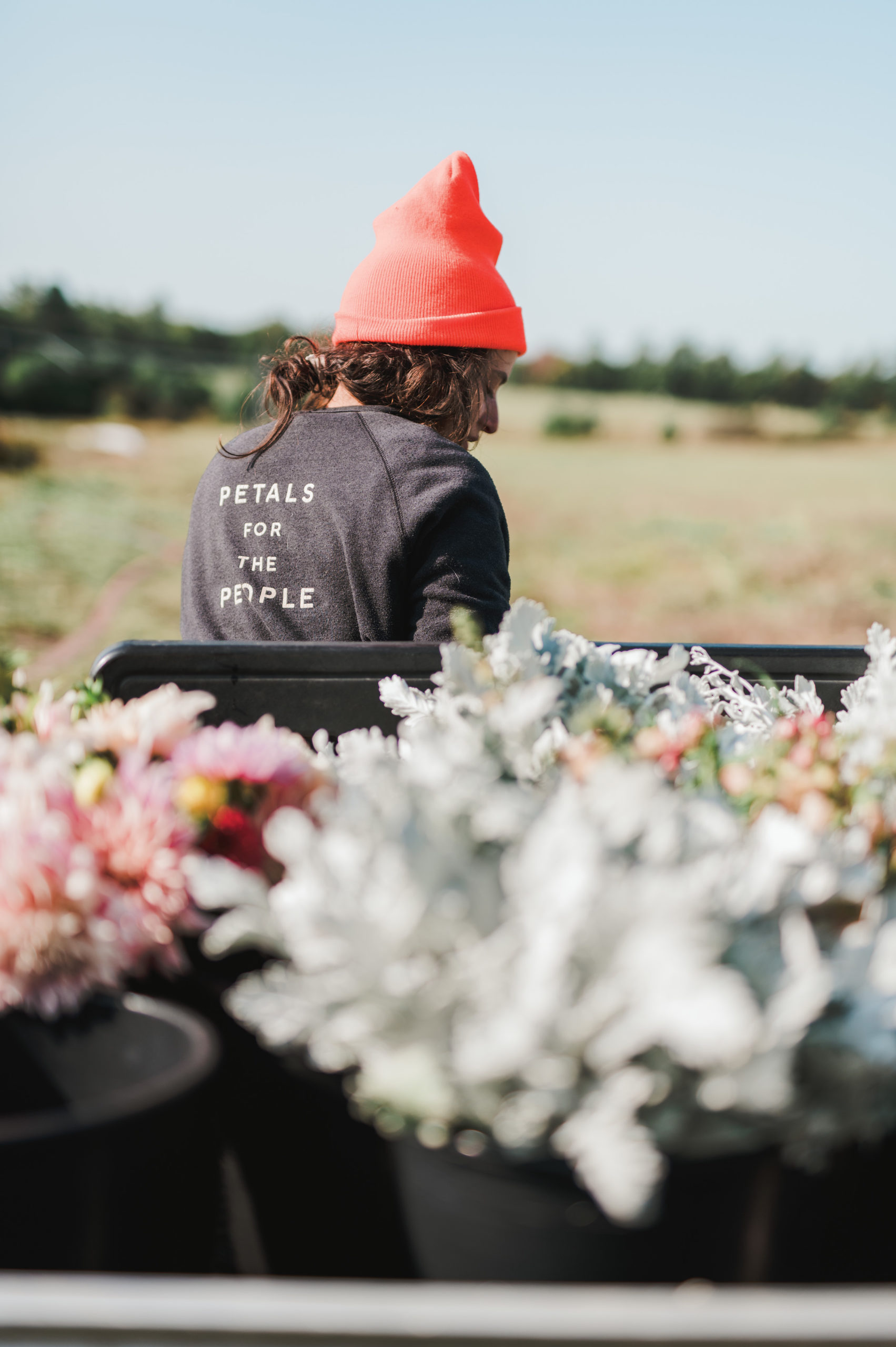
Maine’s Flower Farmers Cultivate Sustainable Beauty and Social Justice
The owners of Broadturn Farm and Snell Family Farm thought they were doing the best they could for their communities. Then 2020 happened.
by Katherine Gaudet
Photography by Christina Wnek
Issue: March/April 2021
The first Maine-grown bouquets to appear at the farmers’ markets in April are something special. Their freshness and color are pleasures that can’t be replaced by the easy availability of grocery store flowers shipped in from warmer regions, any more than the taste of the first local strawberry, warm from the field, is replicated by refrigerated clamshells of fruit you can get anytime. This is why, Stacy Brenner tells me, her crew at Broadturn Farm spent the short daylight hours of January in the Scarborough farm’s high tunnels, planting anemones and ranunculus, coaxing along strong little tulip shoots. Growing flowers in Maine has its difficulties, Brenner says, starting with the short growing season. But a community of flower farmers is taking on the challenge, and finding a base of customers willing to forgo roses (the climate here doesn’t work for them) in favor of blooms rooted in Maine soil and in carefully considered values.
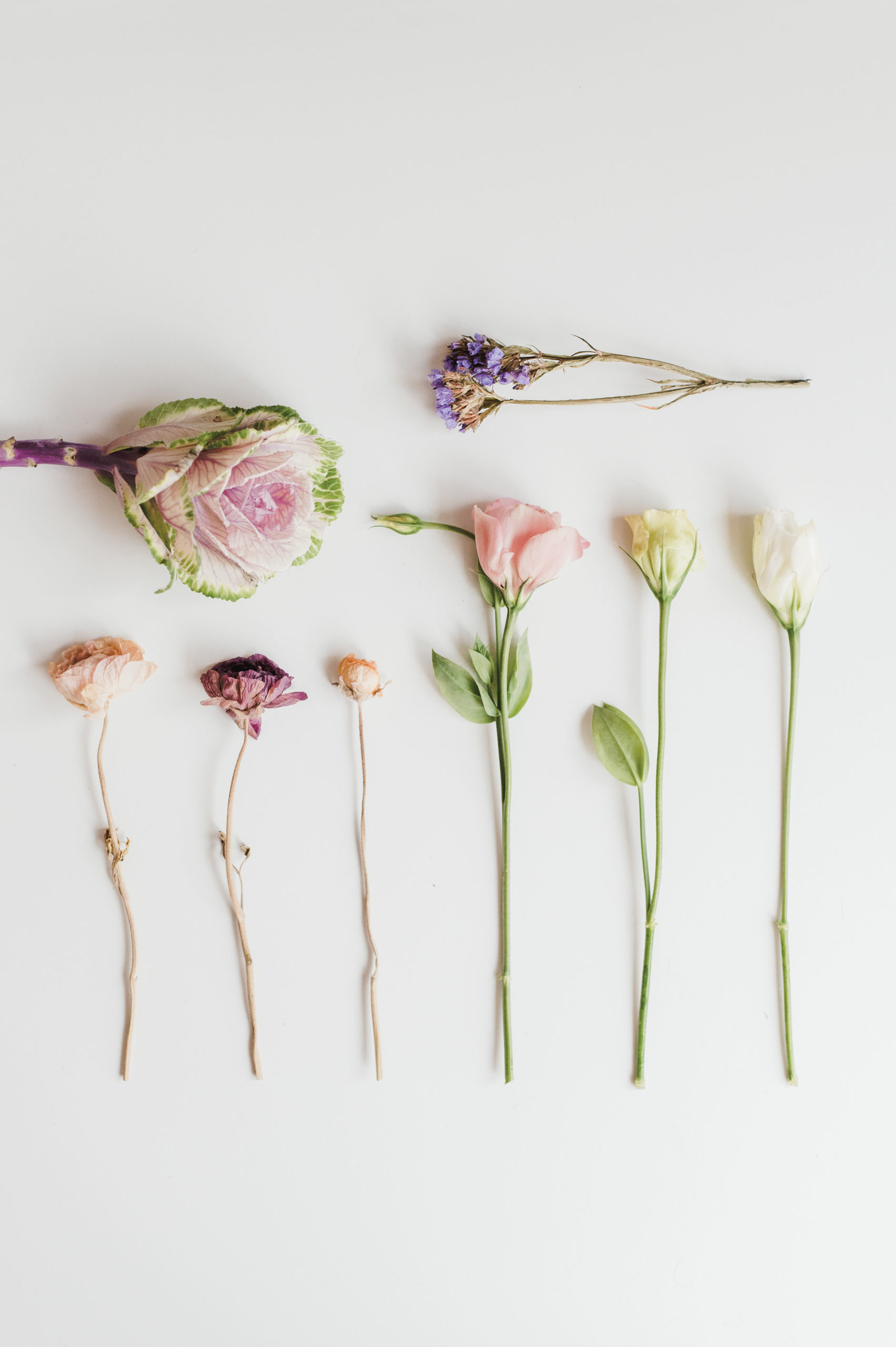
Brenner and her husband, John Bliss, came to farming with a social justice mission, aiming to nurture and enrich both the land and the community. The land they farm was acquired by the Scarborough Land Trust in 2004; Broadturn Farm recently signed a 99-year lease. The acres that aren’t used for farming are available to the public for “traditional uses” like hunting and tracking; there are public trails through woods that feature an ancient pine tree and a lovely forest stream. Anyone can drive up, wander the fields, hike through the trees, and wave to the livestock.
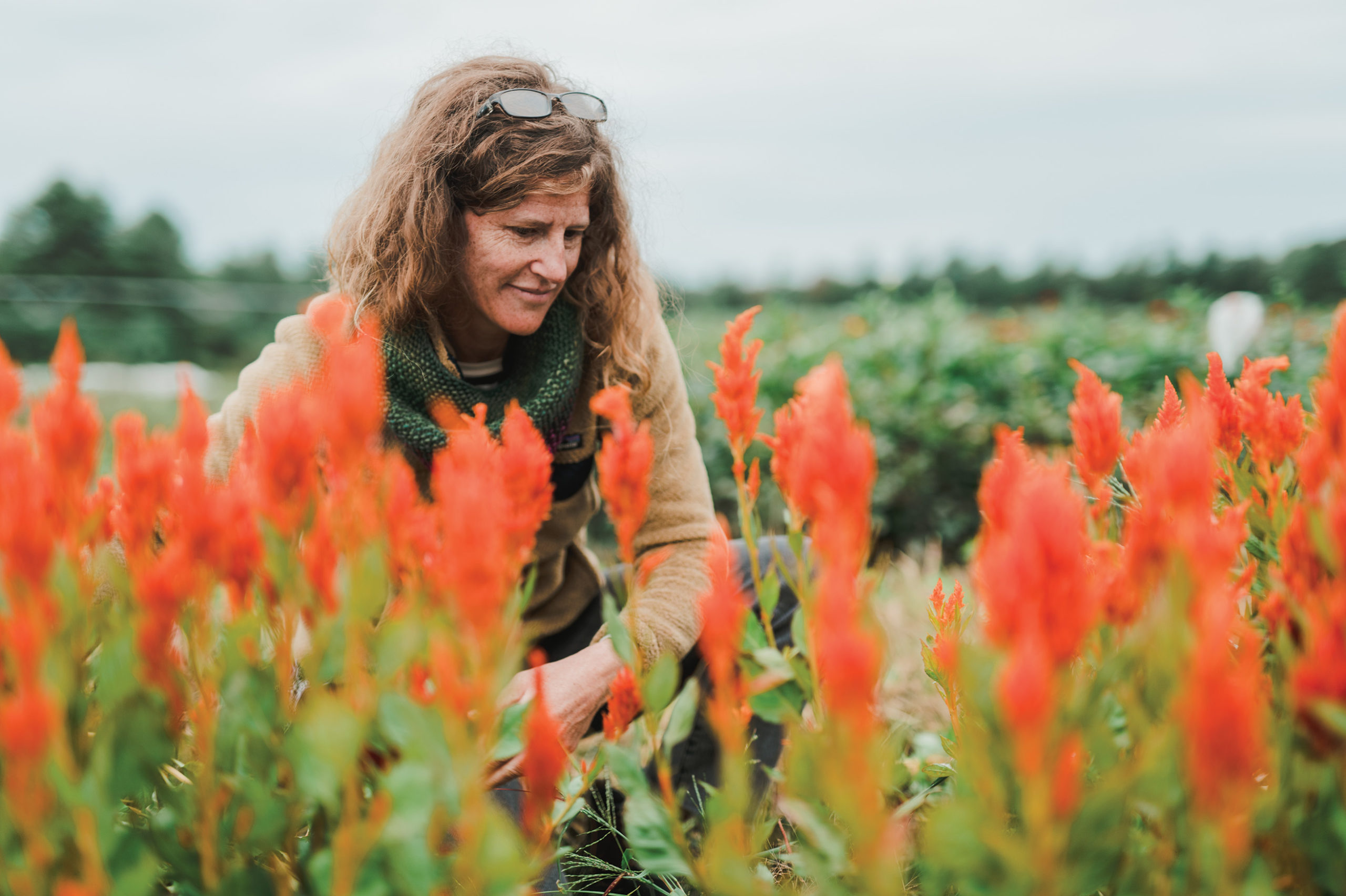
Broadturn Farm’s Stacy Brenner surveys a field of celosia.
Flowers weren’t originally in Brenner and Bliss’s plan. “I was drawn to feeding people,” says Brenner, who also works as a nurse and midwife, and they started off growing produce. But vegetables got boring. “I was needing a larger challenge, so I would plant flowers as a hobby. We had a child who was an infant. I was stuck by the house nursing a lot, and just kept adding to the flower beds.” People started asking about weddings, and what had been a side project became a job. Here, again, the couple’s principles shaped their approach. “We wanted to be a different player in that space,” says Brenner. “Weddings can be built around local flowers and food. They don’t have to be a wasteful experience. We wanted to show that you could bring your loved ones together, and it could meet your values.”
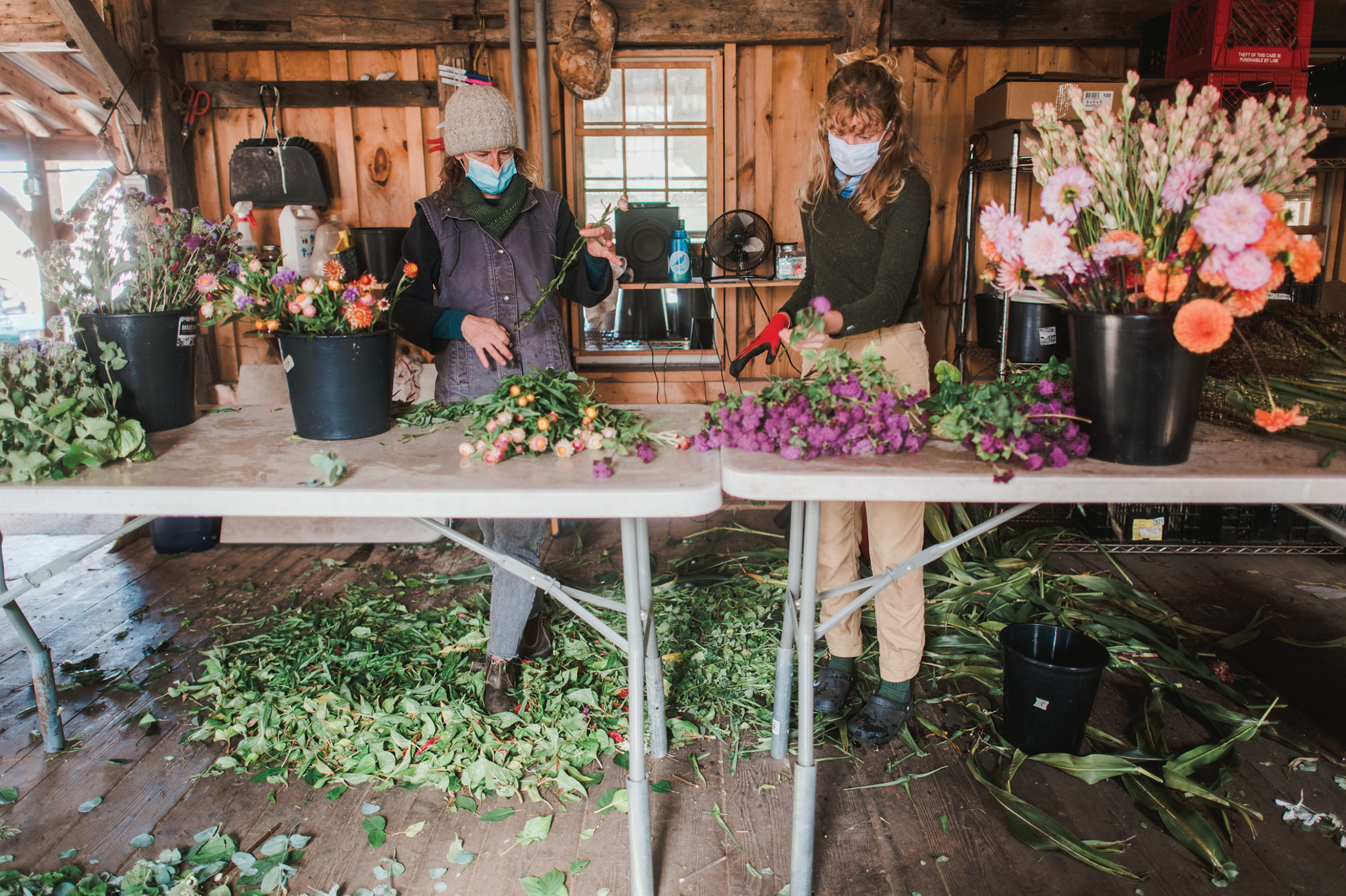
There are clear environmental benefits to decorating an event with locally grown flowers. “They’re grown here, they go to a beach in Scarborough, and they come back to get composted,” says Brenner (the farm also hosts events on-site). More broadly, she continues, “I love the idea that flower farmers are keeping land and agriculture in Maine, keeping jobs in Maine, contributing to the tax base through sales taxes, using our American labor practices.” But the social unrest of 2020 drove her to think more deeply about her work: What legacies of social exclusion might be hidden behind a frothy spray of sustainably grown flowers? “Climate justice has always been something we think about, how we engage with the natural systems. But we need to think more about the role that we play in social justice, in racial justice. We can do more.”
I have read about the toxic working conditions that plague flower growing in South America, so I ask: Doesn’t treating workers fairly and avoiding cancer-causing chemicals contribute to social justice? “I think that’s what we were telling ourselves in advance of this summer,” she sighs, “giving ourselves a pat on the back because we weren’t in Ecuador exploiting our workers. But it’s complicated.” She launches into the story of flower growing in Ecuador and Colombia—started by the U.S. with incentives to replace cocaine production and taken over by Dutch companies that saw the commercial potential of the climate combined with poor labor regulations. When farmers pushed back against exploitation and won some protections, the companies left for less restrictive countries—leaving behind collapsed economies. To buy flowers locally might be helping South Americans avoid cancer, but it might also be taking away their incomes, or encouraging cocaine exports.
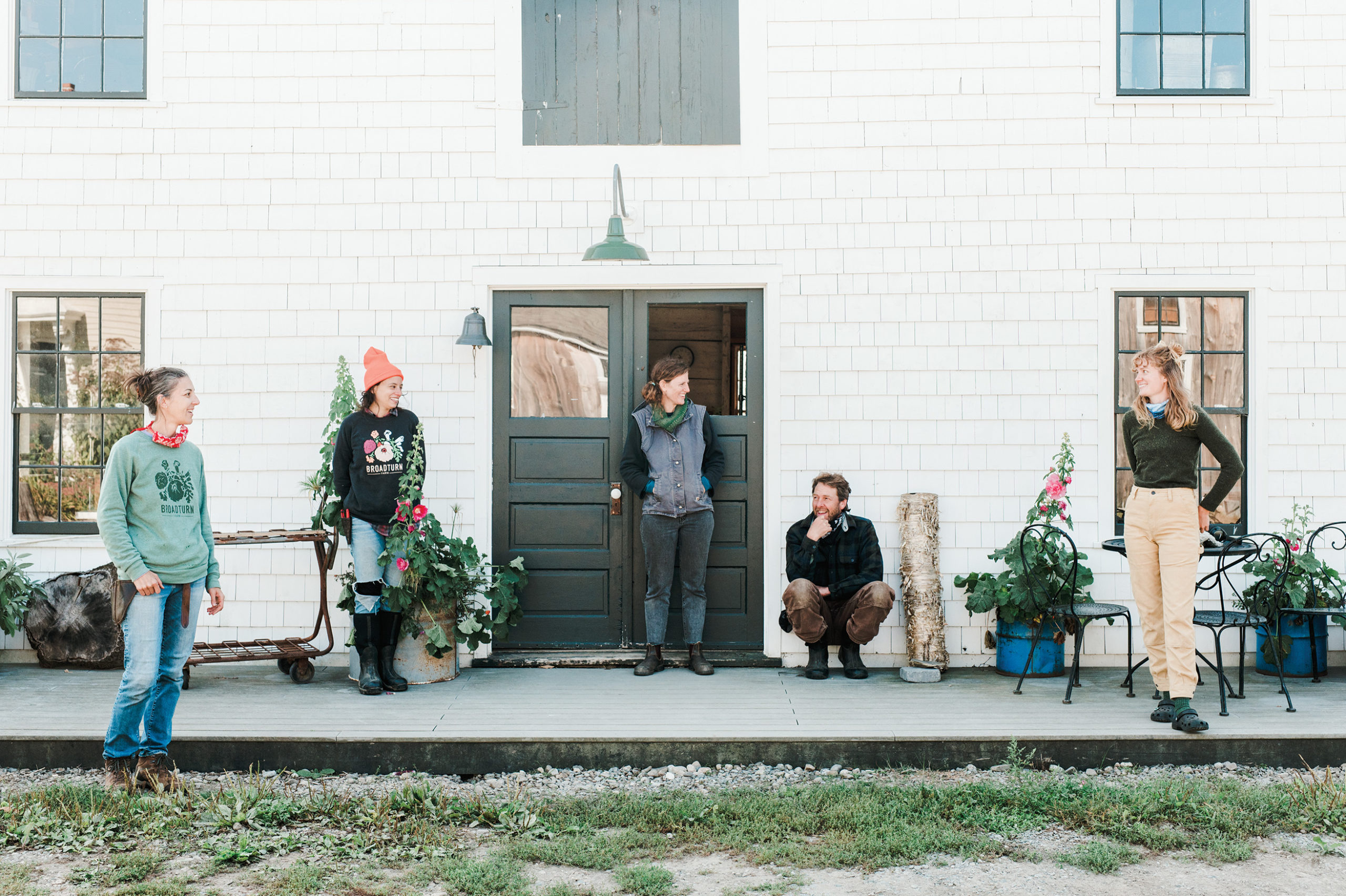
For Brenner, grappling with the role her business plays in the world starts with learning and conversations. “With regard to racial justice, we’ve spent time as a team talking about what it means to be an antiracist business. We’ve been doing lots of reading,” she says, and thinking about ways to make both the farm and its products available to a broader group of people. When I visit at the end of the growing season, the last buckets of eucalyptus and chrysanthemums are being packed up for donations; this summer, the tables, chairs, and tents set up for weddings will be left in place long enough for nonprofit organizations to use them for their own events. Brenner is participating in a program called First Light Learning Journey, which helps people working in land conservation learn about the region’s Wabanaki history and work toward equitable practices in land management (Broadturn Farm is located on land once occupied by the Pequawket people). She is also a new Maine senator representing constituents in Scarborough, Gorham, and Buxton. The last didn’t come easily to her: “The campaign was brutal,” she says. But after being approached about the position in 2019, she says she felt she had to do it: “With two daughters, the climate crisis, women’s rights being chipped away—what am I going to tell them, that I watched Netflix and drank wine and complained to my friends? Or that I stepped up?”
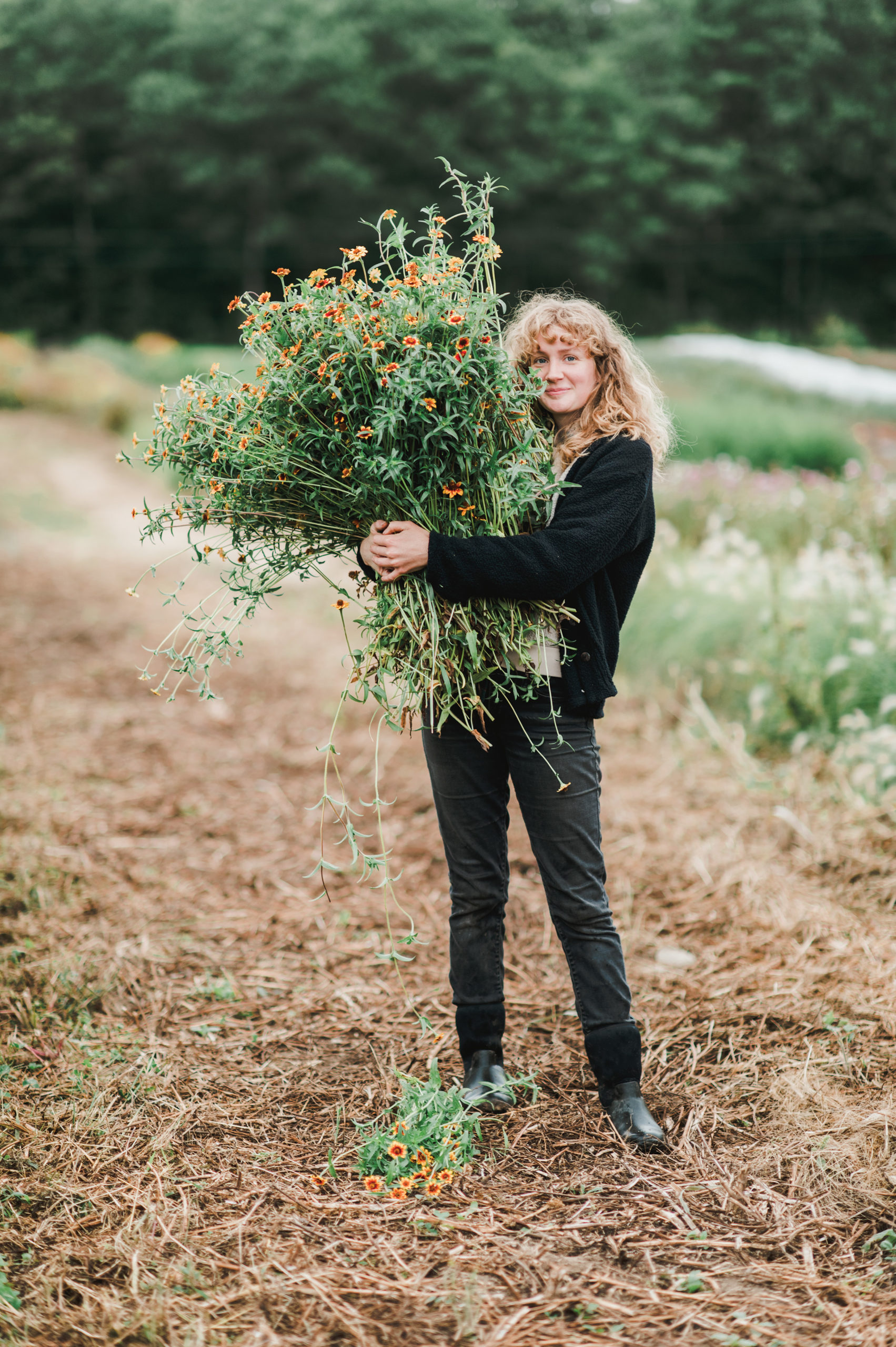
Emily Hayes, a member of Broadturn Farm’s crew, embraces an armful of Rudbeckia triloba. 
Carolyn Snell of Snell Family Farm in Buxton.
Farmers and florists around the state are joining Brenner in thinking about and taking action toward environmental, social, and racial justice. Some growers and designers use the tag “slow flowers,” popularized by Seattle writer Debra Prinzing, to indicate that they focus on local and sustainable blooms (much as “slow food” represents intentional ways of farming, cooking, and eating). In July 2020 florist Rayne Grace Hoke of Flora’s Muse in Biddeford organized donations from growers and designers to create an installation at Portland’s Green Memorial AME Zion Church as a celebration of Maine’s Black communities. This year’s annual Flowering in the North conference, hosted by the University of Maine Cooperative Extension to invite growers from the region to learn from one another and from horticultural experts, featured a panel on diversity, equity, and inclusion in the flower industry.

After the death of George Floyd in May 2020, Snell Family Farm in Buxton began choosing a particular crop each week to raise funds for social justice causes. Proceeds from poppies went to bail funds for protesters; sales of millet bundles supported showers for unhoused people in Portland. “The relationship we build with customers and clients is very intimate—some we see twice a week. That’s a pretty powerful relationship,” says Carolyn Snell, who leads the flower program at the farm her great-grandfather bought in 1926 (it, too, was once Pequawket land). “To some extent, it can be a powerful platform to bend the arc towards good or justice. I want to push against the idea that flowers should be a respite from other parts of our world and selves. Instead, they can be a way we can share our humanity with other people and start conversations that need to be had.” She says that many businesspeople have tended to keep their personal beliefs out of the public eye, but after the social uprisings of the past year, “a lot of people decided to tear down that barrier.”
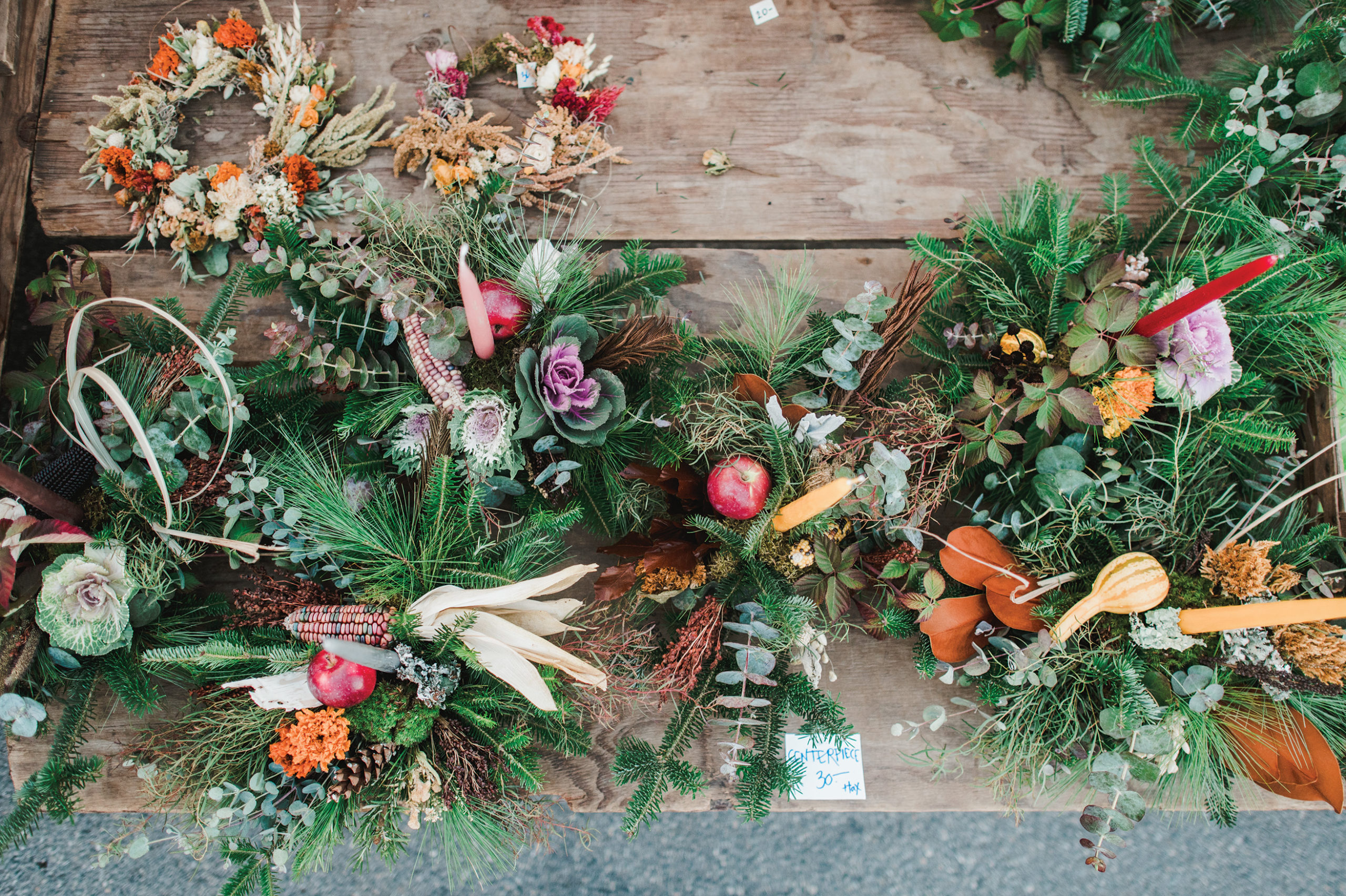

The team at Broadturn Farm organizes flowers. 
Emily Hayes processes flowers for bouquets at Broadturn Farm.
Snell sees flowers as opportunities for connecting—with social reality, with our fellow humans, and with local beauty and natural rhythms. “When I see floral design by people who have access to global flowers, all the seasons at the same time, it can be jarring to me,” she says. It’s fall when we are speaking, and Snell is working on arrangements of dried flowers—“a new old trend,” she says, making its way back after the globalization of the flower industry in the 1990s, when people “wanted a fresh bunch from the grocery store every day instead of dried.” Dried flowers give those of us in wintry climes “a way to pause seasonality” without ignoring it altogether, and a way of appreciating the subtle beauty that appears when the world turns brown and gray. “A lot of floristry is about noticing,” she says, telling me to keep an eye out for the way bracken ferns shine with a metallic coppery sheen after the frost. For her, seasonality is itself precious: “It feels special to enjoy a thing at its peak when it’s available, to know you’re not going to hold a bunch of lilacs again for a whole year. It makes the moments really special.”
This recalls something Brenner told me about what her clients gain from choosing weddings without roses, bouquets that can’t be pre-designed via Pinterest. “We want someone to have a little wearable, or hold something in their hand, that a year later, when they’re in a friend’s garden in Maine, it takes them right back to that special day when they shared their commitment to each other,” she says. Funerals are sometimes followed years later by notes that describe a feeling of connection with the lost loved one when the same flowers are in bloom. “How does it stay in your memory, how do you make it part of the cycle of the season? We want it to be bigger than just flowers,” Brenner says. “Flowers need to be the medium toward a larger purpose.”
